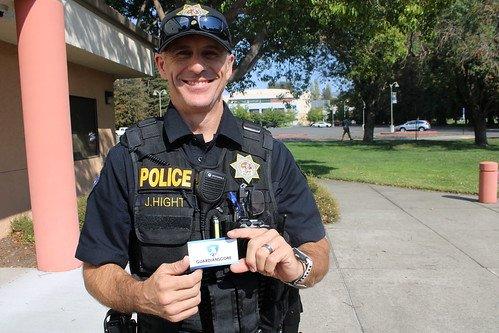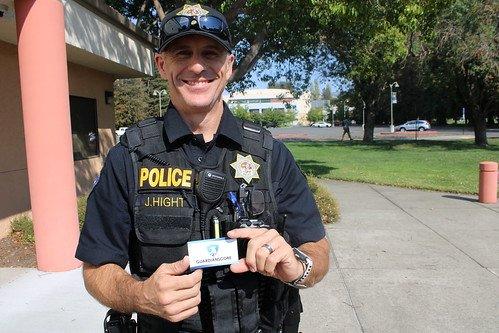The Sonoma State University Police Department has implemented a pilot program that will last from Aug. 8 until Nov. 8 designed to help police administrations use real-time data analysis and insights to understand the community perspective toward their police interactions. Depending on how successful it is within the community, and if it’s worth the cost, they will decide whether or not to continue the program.
This is available to anyone they serve in the community, not only SSU students, anytime they have more than a question and answer interaction with an officer.
The pilot program is through Guardian Score which is a survey solution developed because police departments do not have an easy way to measure their officers’ customer service skills in the field.
Guardian Score is different from other platforms because it is not designed for members to complain, rather, its purpose is to help leaders identify areas they need to strengthen in their department so they can better serve their community.
When a police officer gives the card to a community member they have served, on the back there is a QR code that takes you to a digital survey about your interaction. It is anonymous, takes less than one minute and explores the officer’s professionalism, listening skills, fairness, and explanations.
The questions are based on procedural justice principles to rate the experience a user had with an officer. Users have the options to rate their interaction with an officer from one to five stars, five being the highest. The results of this survey are delayed five to seven business days, at which point police leaders and officers can check their dashboard to review their customer service scores. The data isn’t available to the public and only the campus police department has access to it.
The Guardian Score website states that in America there are currently 150 police officers being evaluated through these QR Codes. Around 10,000 community members have access to this program and more than 5,000 surveys have been submitted nationwide.
Police Chief Nader Oweis (nah-der, oh-ways) spoke to the STAR last week about new things happening at the police department.
According to Police Chief Oweis, the response rate for these surveys is 19%, which is high compared to other units that have implemented similar systems. Usually, the average response score ranges from 4.7% – 4.9%
SSU Police Officer Jason Hight said, “It is super important for the students to be able to use it to voice their opinions or voice concerns if they have any with their interactions with an officer.” He tries to remember to give it out to every person, but there are often times where, depending on the crime, it may not be appropriate to give out; especially when speaking to a victim about an uncomfortable situation. Hight has tried to give one to every person and has provided services such as during escorts, traffic stops, and smoke alarm calls. He even gave one out when he was at the Campus Recreation Center Expo (REXPO) playing ping-pong with some students attending the event.
If students know that these cards exist, they can ask for one for future cases if an officer forgets to distribute them.
COURTESY // Cec Fernandez
SSU Police Officer Hight with their QR Code card. These cards will be available to anyone served in the community by SSU Police allowing for community feedback.




































